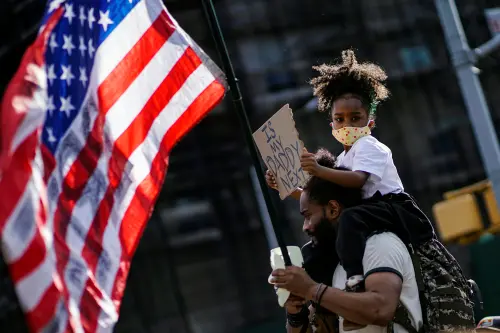Black men face a range of challenges in the labor market which hinder their employment opportunities, as discussed in my accompanying paper “Why are employment rates so low among Black men?“.
What can be done? Effective policies, operating at the federal, state and/or local level, to address some of these challenges include the following:
- Reduce racial segregation of neighborhoods and schools
Residential segregation between white and Black households, and the segregation of K-12 schools that it generates, damages the educational and employment outcomes of Black boys and men, as shown in studies here and here). Reducing segregation would improve job prospects for Black men, through policies such as federal and state incentives to limit local zoning (which eliminates lower-cost housing from affluent suburbs), expanding affordable housing in racially diverse neighborhoods, and providing more federal support for highly-integrated “magnet schools”.
- Boost early work experience for young Black men
Getting work experience early helps with long run employment outcomes. Programs should start in high school. One approach is to expand Summer Youth Employment Programs, which have a range of positive effects on employment in the short term, and on education and crime prevention in the longer term. Access to both skills and jobs can also be enhanced by expanding Career Academies and other forms of high-quality career and technical education in high school, as well as work-based learning through internships and apprenticeships.
The program Year Up, for example, provides training and six-month internships for low-income students, especially those of color, and shows very impressive positive impacts on subsequent earnings and employment of participants. New initiatives like P-Tech, which begins in grade 9 and creates a pathway into community college vocational programs, seem promising. More career education, beginning in middle school, would help too.
- More–and better–college credentials
Lifting rates of higher education attainment among Black men would help a great deal. Gaining a bachelor’s degree has the biggest impact on employment outcomes. But there are many other options for acquiring valuable postsecondary credentials, including certificates and associate degrees at community colleges. The key is ensuring that these credentials have real labor market value. In other work, I have outlined a series of policy reforms–including more funding for high-quality occupational programs–that would benefit low-income youth and adults, particularly those of color, and not least for Black men.
- Reduce crime and incarceration rates
Reducing crime rates and incarceration of Black men is a vital step towards boosting employment rates. There are a number of ways to achieve this. First, states and localities should expand the use of community policing and other approaches that successfully reduce crime without subjecting Black men to excessive use of force. Second, mental health professionals should be consistently deployed along with police, to defuse situations where mental illness leads to violence and deaths. Third, greater investment in programs that reduce crime and violence among young Black men–including summer employment and others, like Becoming a Man, that teach young participants how to avoid violence in confrontational situations. Fourth, expanded drug courts and treatments for those suffering from substance addiction. Fifth, seek out and eliminate the sources of racial bias in law enforcement at all levels.
- More help for returning citizens into work
For those many Black men who have been incarcerated, more needs to be done to help them transition into paid work. Bruce Western shows how many former inmates still suffer from drug addiction or other mental health challenges upon release from prison. Assistance for these men, especially designed to reduce recidivism, is critical. One approach is to fund transitional jobs, which raises employment for these men in the short term – and can also reduce their recidivism rates over time.
- Subsidized jobs
A large fraction of non-employed Black men suffer from disabilities and other barriers to work. Creating more subsidized jobs in either the public or private sector for these individuals could help them into the labor market. The broadly positive experience with emergency subsidized job creation at scale during the Great Recession illustrates the potential for such programs even when the labor market is stronger.
Invest now in Black men’s employment
The policy interventions described above, implemented properly, will not be cheap. In some cases, the evidence for effectiveness at scale is not yet that strong–which means that experimentation and careful evaluation will be necessary. But now is the time to invest in a full range of policies and programs to improve employment rates of Black men. As a nation, we simply cannot afford to waste so much personal and economic potential.






Commentary
6 policies to boost employment for Black men
March 16, 2021